
Limited Impact
The editorial of Arman Melli argues that although some of Iran’s frozen assets have been released, it is not going to have a significant impact on the country’s economy.
Several billions of dollars of Iran’s assets in Iraq and South Korea have been unfrozen and transferred to a bank in an Arab country. However, Iran’s unfrozen funds are not enough to have a big impact on the country’s economy.
In addition, roughly $6 billon of Iran’s assets in South Korea have been released, while previously it was reported to have been $7 billion. The question is: how come only $6 billion of this amount has been released? More importantly, if this money was received two years ago and was spent on basic goods and medical supplies, more products would have entered the country.
The unfrozen money will be deposited in a bank in one of the Gulf states and not in Iran’s account. And it will be spent on purchasing only the goods that have been agreed upon. So it is wrong to suppose that there has been a breakthrough in the country’s foreign policy. The recent developments represent a very short-term relief.
But unfreezing Iran’s assets can be a foundation for resolving other issues. The main point is that if the nuclear deal (JCPOA) was revived, then all the country’s demands and financial transactions would return to normal. But this memorandum of understanding for releasing Iran’s assets is not within the framework of the JCPOA and is very limited.
So it is hard to imagine a significant change happening in Iran’s forex market. But if $6 billion worth of goods and products are imported to the country, then the government can sell them to the people and thus decrease the level of liquidity in the market.
Nonetheless, it is fair to say that compared to the size of Iran’s economy, the unfrozen assets are small. Such measures are just a short-term relief and will impact Iran’s economy for a short time. The main solution to bring the economy back to normal is to stop the pressure of sanctions on Iran.
What Is the Root Cause of the Shortage of Physicians?
The editorial of Aftab Yazd explains that the main cause of the shortage of physicians in Iran is officials’ inability in absorbing medical graduates.
Based on a ratification passed by the Supreme Council of the Cultural Revolution a few years ago which was eventually declared by the Iranian president in 2021, to added 20% of each year to the capacity of universities for accepting medical students. The ratification intends to address the issue of the shortage of physicians in the country.
It is not clear why officials do not learn from the mistakes made during the past 35 years. In 1985 and 1986, the Ministry of Health, Treatment and Medical Education was separated from the Ministry of Higher Education. The primary objective was to increase the capacity for accepting medical students.
To achieve this objective, medical education and training were put under the aegis of the Health Ministry. But there is no proper understanding as to the cause of the shortage of physicians in Iran. Notwithstanding the fact that physicians have been educated and trained in the country for more than 30 years, there has always been a shortage of physicians.
What is the reason for this? Is it because not enough medical students have been accepted by universities, or is it because the Health Ministry has no plans for absorbing physicians? This issue has been repeated for years, while officials double down on making their own mistakes.
Under these circumstances, increasing the capacity for accepting more medical students means wasting the country’s capital. The problem is not the dearth of medical students, but it is the fact that officials are not capable of absorbing physicians.
To prove this claim, one needs to take a look at the number of physicians leaving the country. Instead of wasting money on increasing the capacity of universities for accepting more medical students, why do officials not focus on ensuring employment opportunities for medical graduates?
For 35 years, experts have recommended this solution, but the country’s officials do not pay any attention to such recommendations and have no correct understanding of these problems.
Another Look at the Hijab Bill
The editorial of Arman Melli penned by “reformist” academic Sadegh Zibakalam argues against the hijab bill that is being ratified by the Iranian Parliament, saying even pious people are against putting pressure on women and girls for not complying with the hijab law.
It is gradually becoming clear that the issue of hijab involves not only ideological issues, but is also related to creating revenues for certain entities by punishing and fining women and girls who are not ready to comply with the hijab dress code.
The question is: which entity or organization is going to enjoy these revenues obtained through punishing and fining women and girls? It seems that at least part of these revenues – if not all – must be given to law-enforcement forces as they are in charge of directly confronting people. Perhaps the government is also after depositing these fines in its treasury.
Interestingly, what is not talked about are the problems that exist in the country in different fields. Because of the dire economic and livelihood conditions, dissatisfaction and lack of hope and trust for any improvements in these conditions, people look to the future with uncertainty.
For sure, women’s social rights must be fully protected. Some say that not even a simple poll has been held regarding controversial issues like confronting those who do not comply with the hijab rules. And some maintain that even religious people might be against such harsh measures against women.
There are many cases of pious men and women who are against such modes of confrontation with women and girls over the issue of hijab. A part of society does not agree with such treatment of women and girls over the hijab issue, holding that more persuasive and cultural approaches must be opted for.
Such confrontations will increase dissatisfaction among people, and they will further lose their trust in the current methods and approaches adopted by the Iranian establishment.
Perhaps, in the coming years, more youths and elites will flee the country due to the pressure of economic and social problems.
No Sign of Drop in Dollar’s Price
The editorial of Shorou predicts an increase in the rate of forex in Iran in the second half of the year as tensions between the Iranian government and the West are not eased.
If there is no development in Iran’s political and commercial relations with the United States and the West, the price of the dollar will not go through any major changes in the first half of the year, but will increase in the second half.
The policy of de-escalation with Saudi Arabia has created hope for economic improvement which has resulted in greater economic participation, particularly in the forex market. As a result of the de-escalation policy adopted by the government, currently the forex market has become calm.
But it seems that other countries have not been convinced enough to resume normal political and business relations with Iran, or Iran has not been able to create the environment for this normalization process. One can say so because Iran’s political and commercial relations are limited to Saudi Arabia while Saudi Arabia has not sent its ambassador to Iran yet.
On the other hand, there are no promising prospects for resolving the issue of the sanctions and FATF bills. Diplomatic exchanges and consultations have not stopped, but have not come to fruition yet. After two years, Raisi’s government is still replacing its ministers and senior officials. Every day, an official is either discarded or resigns, which sends the signal of not having desirable management within the country.
Tensions with the United States and the West and some regional countries have not eased yet, which means there is no clear horizon for a decrease in the dollar’s price.
Currently, the price of the dollar is about 49,000 tomans to 50,000 tomans. But with the slightest negative change in foreign relations, the price of the dollar will spike. Any political incidents in the regional and extra-regional spheres will once again disrupt the forex market in Iran.
Tensions between Iran and the UAE over the three islands in the Gulf will certainly impact prices in the forex market. The slight decrease or relative stability in the inflation rate has nothing to do with the government’s performance; it is rather because of the stability that apparently exists in Iran’s political relations with other countries in the region.
In the second half of the year, the government will face a budget deficit which will force it to resort to printing money. And this will certainly impact the price of forex.

Iranian Foreign Minister to Visit Saudi Arabia in “Near Future”
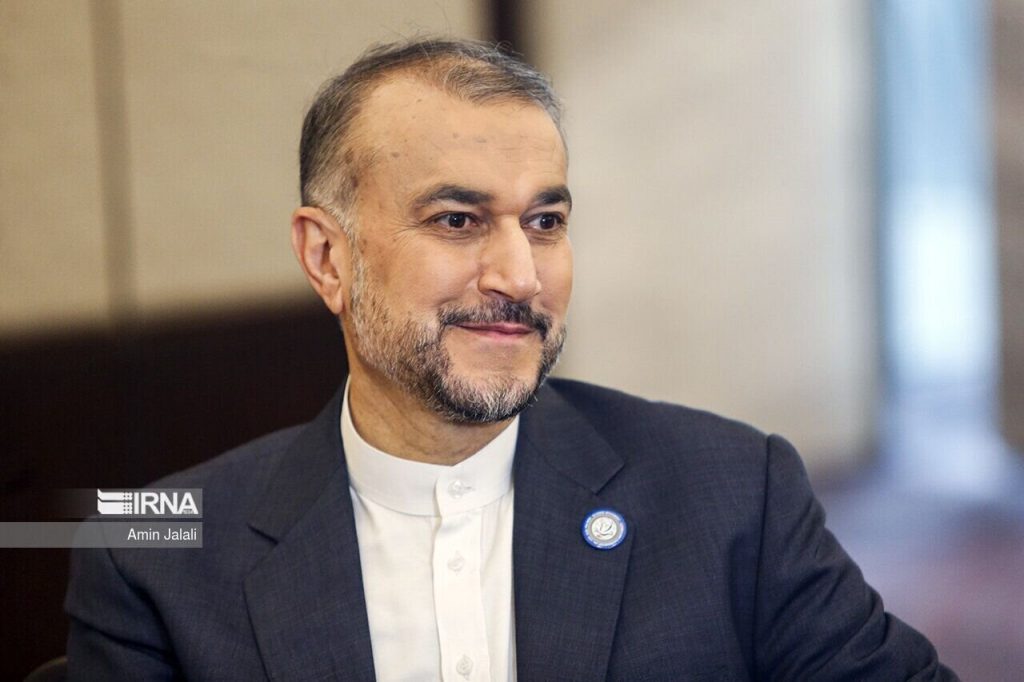
Iran’s Foreign Ministry Spokesperson Nasser Kana’ani announced on Monday that Foreign Minister Hossein Amir-Abdollahian is going to visit Saudi Arabia in the near future.
Kana’ani clarified that the Iranian foreign minister’s upcoming visit is at the invitation of senior Saudi officials and Abdollahian’s counterpart. During this visit, he added, different bilateral issues will be raised and discussed.
In a press conference on Monday, Abdollahian told reporters that Iran’s new ambassador to Saudi Arabia will accompany him to start working in Riyadh.
Following the agreement between Tehran and Riyadh under the mediation of China a few months ago, both sides have agreed to resume diplomatic relations and reopen their embassies and consulates.
The Iranian Foreign Ministry spokesperson also stated that bilateral relations are moving forward step by step, urging that the process of enhancing and developing bilateral relations is on the agenda.
On June 17, Saudi Foreign Minister Prince Faisal bin Farhan Al-Saud visited Tehran and held meetings with Iranian President Ebrahim Raisi and Foreign Minister Abdollahian.
Iranian Government Fearful of Imminent Protests, Mounts Pressure on Victims’ Families
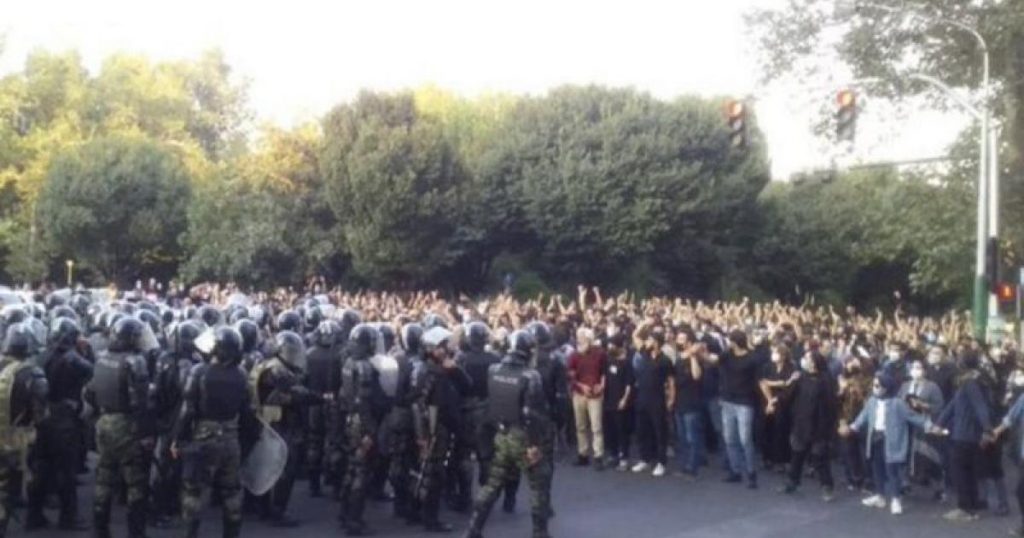
As the anniversary of the killing-in-custody of Mahsa Amini nears, the Iranian republic buckles up for another round of protests by putting more pressure on those whose loved ones were killed in the Woman, Life, Freedom movement last year.
A number of those families have been summoned, arrested or banned from using social media and holding ceremonies to commemorate the death anniversaries of their loved ones.
Father of 16-year-old Kumar Daroftadeh, shot to death at close range by security forces during the peaceful protests in Piranshahr last November, was summoned to the IRGC intelligence center, interrogated and detained for five hours this week.
Reza Babrnejad, whose 22-year-old brother Mehdi was killed by security forces during the protests in Ghuchan last October, was arrested last week. IRGC intelligence agents raided his home, confiscated his personal belongings and took him in custody without any judicial warrant. His charges and whereabouts are unclear.
Meanwhile, a number of these victims’ families have announced in statements that they would not hold any ceremonies on the death anniversaries of their loved ones. The statements seem to have been issued under pressure.
The sister of another victim Hadis Najafi, for instance, asked people not to come to her grave on her death anniversary in an Instagram post, adding “because we won’t hold any ceremony.” Najafi, 23, was shot in the face, neck and chest by shotgun pellets and lost her life in Karaj last October.
In the same vein, the parents and siblings of Hamid Reza Rouhi announced a halt in social media activities until after his death anniversary. Rouhi, 19-years-old, was shot to death by security forces in Tehran last November.
These justice-seeking families have been constantly menaced by the government, especially in recent months. Such oppressive measures, which intend to intimidate, reflect the frustration of the ruling establishment.
Extensive Reactions to the US Allowing Iran to Access Unfrozen Assets; “More Humiliating Than Oil for Food”
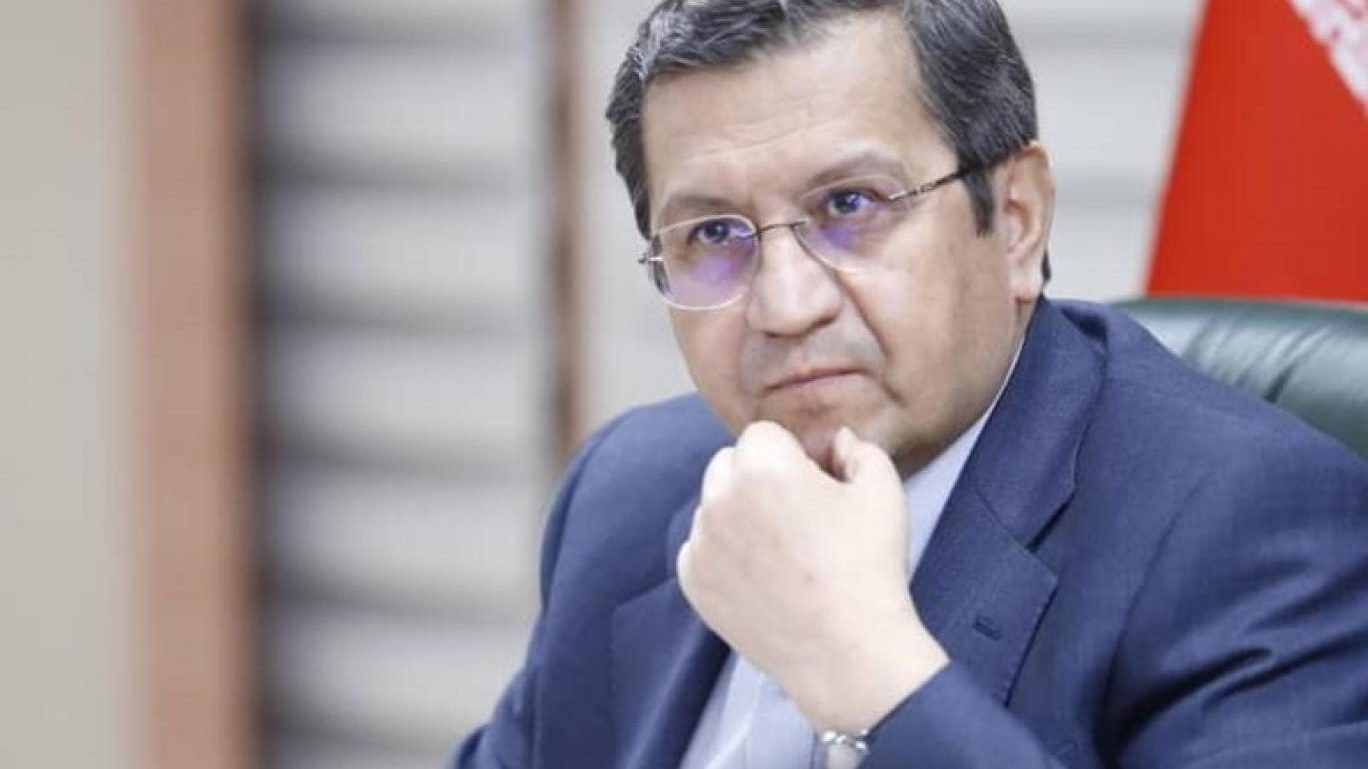
The disclosure of details of the US-Iran deal for unfreezing a part of Iran’s assets in South Korea in exchange for the release of several Iranian-American citizens from Iranian prisons has generated extensive discussions on social media.
After this news was announced, media outlets affiliated with the Iranian establishment sought to present this deal as a diplomatic success for Ebrahim Raisi’s government, but later when the details of how Iran can access its $6 billion of unfrozen assets in South Korea were disclosed, journalists, political activists and social media users called this deal “humiliating.”
According to some media reports, Iran’s unfrozen money will be transferred to a bank in Qatar and can be used for only those items that are approved by the United States, which means that the Iranian government will not have direct access to this money.
Former Iranian Central Bank Governor Nasser Hemmati slammed the deal on Twitter, “Should we now be happy that with America’s permission, we will be allowed to use our resources for food and drugs? Is this how the sanctions are neutralized [by the Iranian government]?”
Hemmati added that Iran has not benefited from oil revenues due to sanctions, “For two years, we have been deprived of $72 billion of oil revenues.”
Bijan Ashtari, translator, has pointed to the new way of “hostage taking” by the Iranian government and the release of Iran’s assets in South Korea, comparing it to the program of oil for food during the Saddam Hussein era in Iraq after his attack against Kuwait.
Ashtari directly addressed Iranian officials saying that this form of doing “business” by the Iranian government is “disgraceful and humiliating.”
The Iranian Foreign Ministry has claimed that Iran is in charge of how the unfrozen money and assets are to be used, clarifying that these funds will be spent to meet the various requirements of the country as deemed fit by the Iranian authorities.
However, US officials and those involved in the talks between Tehran and Washington have denied this claim.
Head of Iran Medical Council Warned Against Emigration of Physicians And Workers to Neighboring Countries
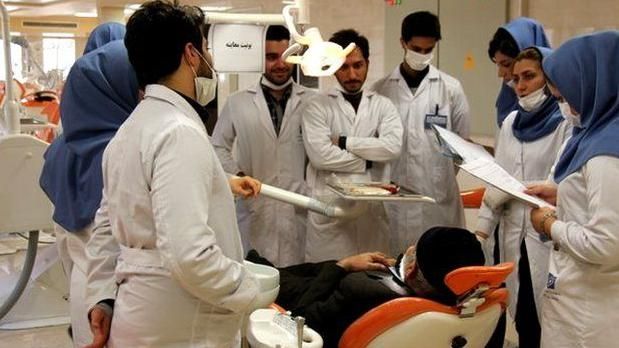
Social and economic pressures are forcing Iranian workers to emigrate from the country in search of a better life.
Recently, Chief of the Iran Medical Council Mohammad Raiszadeh at the annual convention of general surgeons warned about the emigration of physicians to other countries, urging that this trend will harm public health in the future.
Earlier, the Iranian Association of Surgeons President Iraj Fazel too had underscored that the wave of migration cannot be ignored. Any physician or surgeon who leaves the country is a huge loss, he added.
Recently, 29 members of the scientific board of the medical group issued a statement in objection to the expulsion and forced retirement of experienced professors. They warned against the harmful consequences of such measures on the education of medical students.
“Removing professors” is a part of the Iranian establishment’s policy to confront those physicians who took a stand against the government during the nationwide protests after the death of Mahsa Amini in the custody Iran’s so-called morality police.
In the meantime, it has been reported that low wages and inflation have led to an increase in low-paid jobs and migration resulting in a shortage of workers in certain provinces of Iran.
The gap between wages and the cost of living has widened in recent years, with workers repeatedly calling for this issue to be addressed by Iranian officials.
However, as the government and employers are not willing to take any measures in this regard, a number of workers have turned to low-paid jobs, while some workers have fled the country in search of better, well-paid jobs in regional countries.
It is reported that the main cause of the shortage of workers and professionals in some provinces is due to increasing levels of migration as Iranians seek better opportunities in regional countries such as Iraq and Pakistan where they are paid in dollars.
Liquidity Increases to 6.7 Trillion Tomans Amid Rise in Government Debts
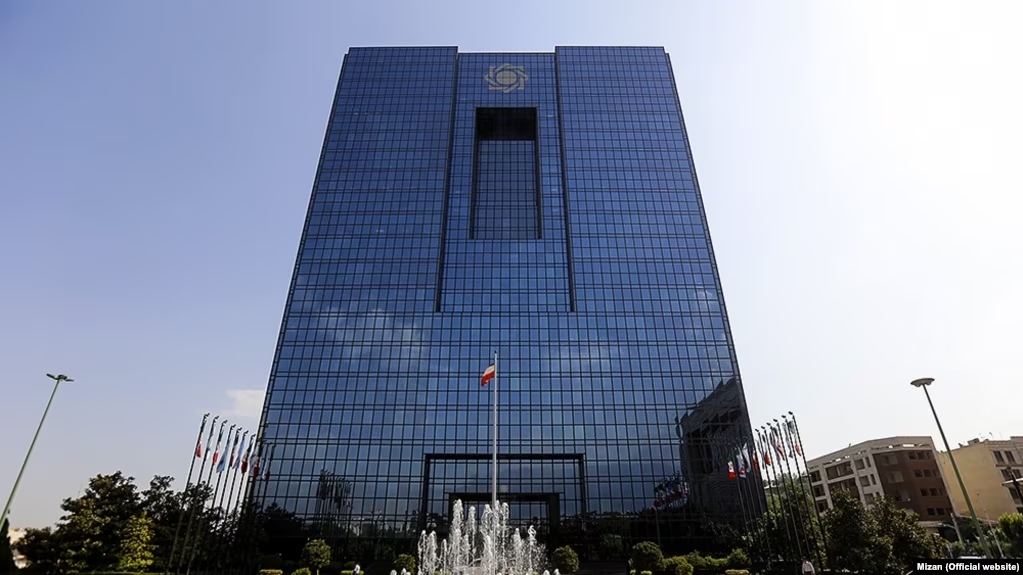
The new statistics of Iran’s Central Bank show a 27.5% increase in liquidity last month compared to the same period last year, reaching 6.694 trillion tomans.
On Saturday, the Central Bank pointed to the growth in liquidity, without mentioning the amount. Nonetheless, in comparison to last year’s Central Bank statistics, liquidity has reached 6.7 trillion tomans.
Liquidity is the most important factor in causing inflation. The World Bank’s recent report shows that— after Venezuela, Lebanon, Zimbabwe and Argentina — Iran has the highest inflation rate in food items in the world.
The World Bank’s updated statistics regarding food inflation show that food inflation in Iran was 78% in May 2023.
Since Ebrahim Raisi’s government has taken office, Iran’s liquidity has grown more than 70%.
The main cause of the growth in liquidity is the government borrowing from the country’s banks and other financial institutions to cover its budget deficit, as well as forcing the Central Bank to print fiat money to pay the government’s debts.
According to IMF estimates, Iran’s liquidity is expected to increase by 38% this year, with government debts reaching one third of GDP, tantamount to $118 billion.
This huge amount of debt is equal to four years of the government’s public budget, and it is not clear how the Iranian government is going to pay its debts back.
During his election campaign, Raisi promised to contain the government’s debts, halt the excessive printing of money and lower the inflation rate while preserving the value of the national currency.
Since Raisi’s government took office two years ago, the value of Iran’s national currency has dropped to less than half.
